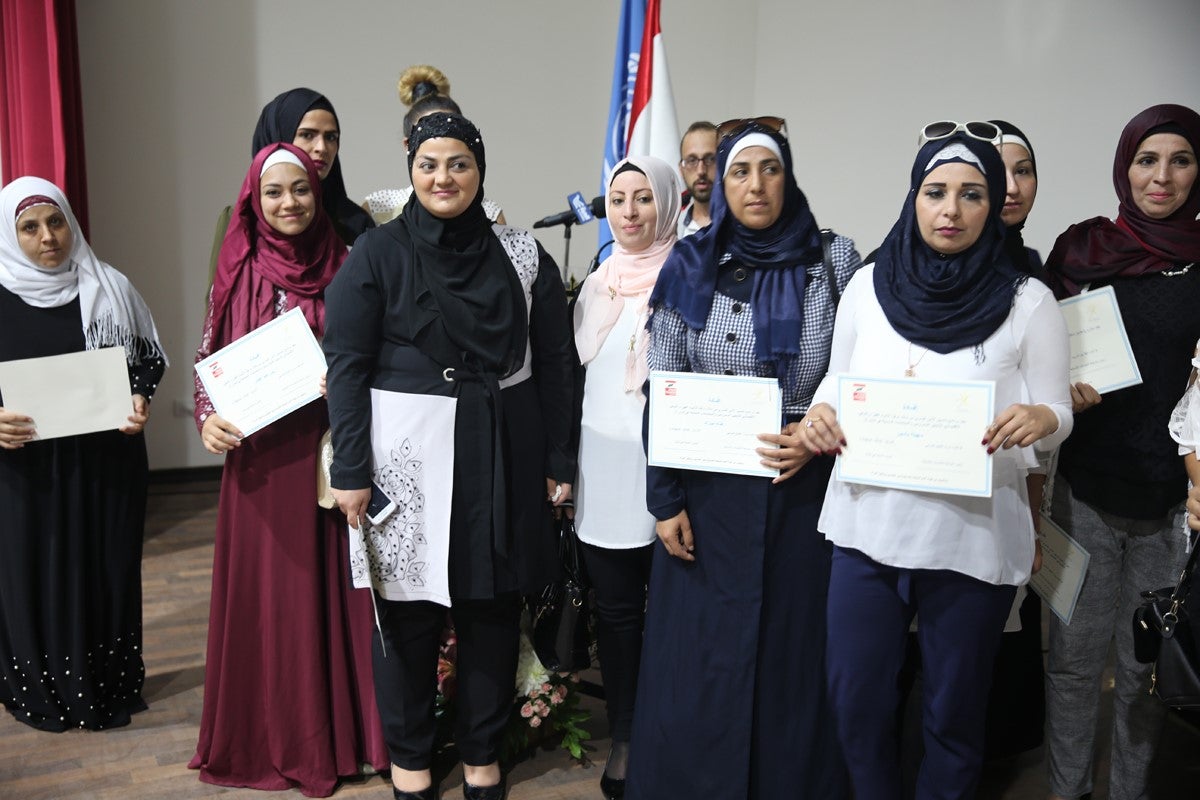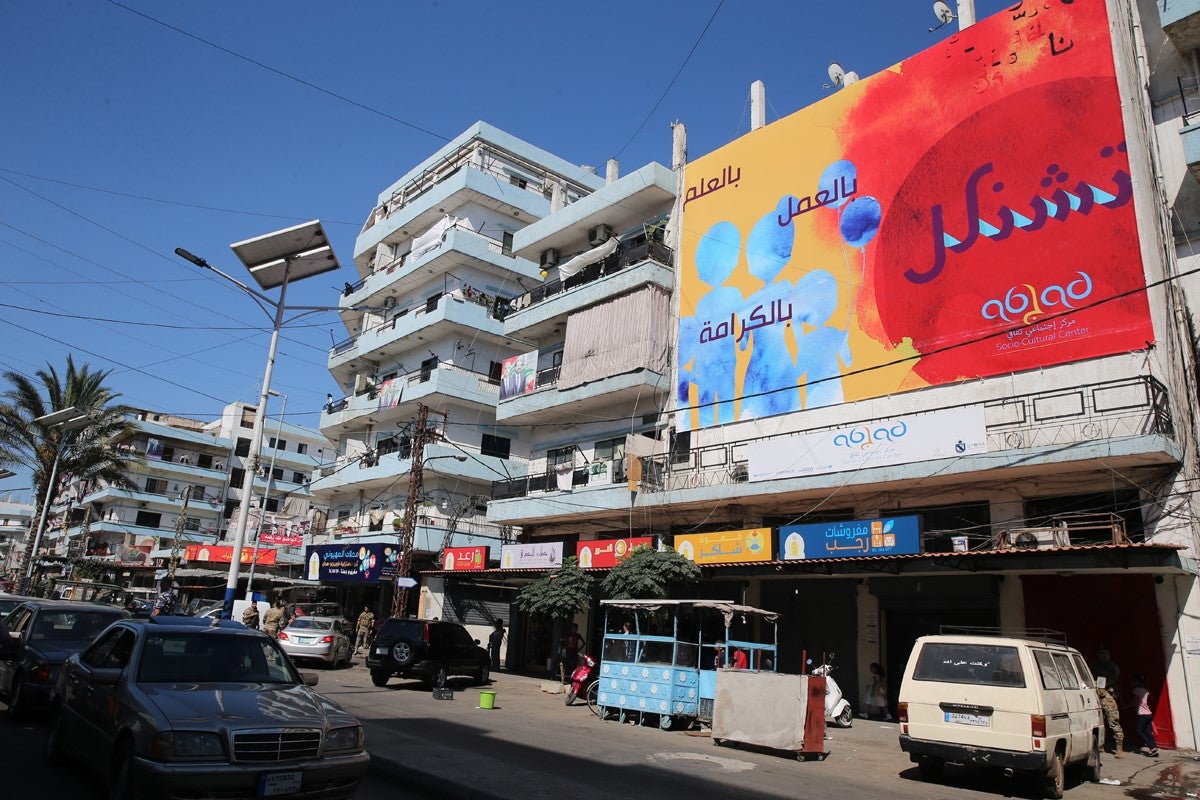Supporting women and girls to foster greater human security in Tripoli
Date:

Tripoli, Lebanon’s second biggest city, has witnessed significant fighting in its recent history, impacting on the local population’s enjoyment of fundamental rights and freedoms, and in particular on the rights and freedoms of women and girls. Women play an essential role in maintaining peace and promoting human security, which are essential to achieve the 2030 Agenda for Sustainable Development and the 17 Sustainable Development Goals (SDGs).
To foster the role of women in Tripoli to advance the sustainable development of their city, UN Women is working with its partners, the Ministry of Social Affairs, Tripoli Municipality, UN-Habitat and UNICEF, with the generous support of the Government of Japan - through a fund granted to the United Nations Trust Fund for Human Security (UNTFHS) - to implement a project supporting women’s empowerment based on a human security approach.
The project aims to strengthen the resilience of women, youth and children by improving their living conditions through life skills, vocational and food processing training, as well as income-generating opportunities. To address the issues, conditions, behaviors and structures that contribute to unsafe environments, UN Women, UNICEF and UN-Habitat established the Abjad center in the context of the joint project “Improving Human Security through Neighborhood Upgrading and Economic Empowerment of Vulnerable Refugees and Host Communities”, or "Shankal". The project’s name “Shankal”, means hook in Arabic and underscores the close relationship between Tripoli’s various communities, despite previous hostilities.
The Abjad center has been set up in a restored movie theater in Syria Street, which was once the frontline of fighting between Bab el Tebbaneh and Jabal Mohsen neighborhoods. This sociocultural centre offers training sessions and public awareness campaigns on women’s rights and provides essential support to survivors of gender-based violence at the Women’s Referral Center, located within the Abjad center. By participating in the activities provided by the Abjad centre, vulnerable women and girls of Bab El Tebbaneh and Jabal Mohsen neighborhoods – including members of both the host and refugee communities – can better protect themselves from violence and become productive and self-confident.

To mark Abjad’s inauguration, a group of women beneficiaries trained in food processing received certificates in a ceremony on 1 August. Ms. Begoña Lasagabaster, Special Representative of UN Women’s Regional Director in Lebanon, speaking on behalf of the project’s three implementing United Nations agencies, said "Abjad center is a place where host vulnerable communities and refugees, will interact without discrimination of age, gender, belief, background or religious affiliation, for a life free of violence”.
Ms. Mehrinaz Mostafavi, Chief of the UN Human Security Unit established in 2004 to integrate the human security approach into the work of the UN system, through the UNTFHS said “people’s survival, livelihood and dignity are instrumental to sustainable development and long-term peace and stability”.
Speaking at the event, Mr. Yoshitake Naraoka, counsellor at the Embassy of Japan to Lebanon said “the concept of human security has been one of the most important philosophies and cornerstones in Japan’s diplomacy and economic assistance.”
Mr. Majed Eid, Head of the Social Affairs Department in Northern Lebanon, representing the Director-General of the Ministry of Social affairs, stressed the important contribution of civil society groups to support the efforts of the Ministry of Social Affairs.
The Al Fayhaa Union of Municipalities’ Director Mrs. Dima Homsi representing the Mayor of Tripoli, Mr. Ahmed Qamaruddin, commended the project steering committee on bringing together the various international, local and municipal partners, as well as the ministry of Social affairs, the United Nations organizations and NGOs to implement the project’s objectives.